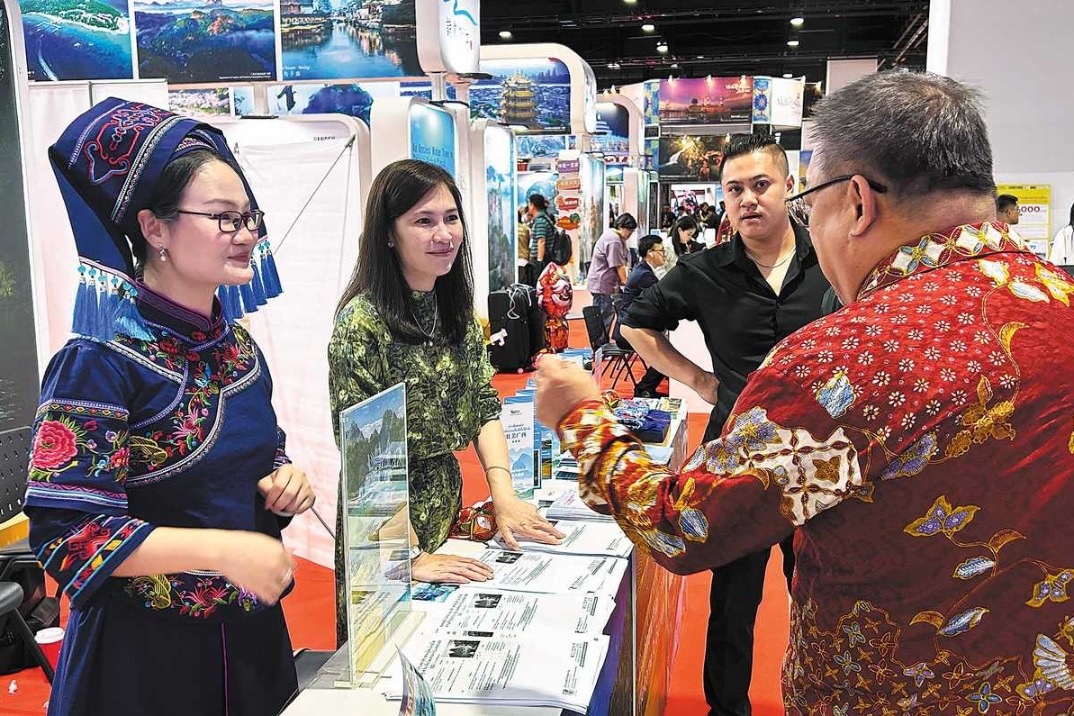Leaders call for actions on biodiversity


Seen as the key drivers of global biodiversity, ministers from around the world arrived for a three-day high-level meeting at the 15th Conference of the Parties (COP15) to the UN Convention on Biological Diversity (CBD) in Montreal, setting to adopt the ambitious post-2020 global biodiversity framework (GBF).
The high-level meeting, starting from Dec 15, assembled ministers from 140 contracting parties and 60 international organizations, including nearly 200 ministerial-level representatives.
"This is the largest number of high-level representatives in the history of COP,"Huang Runqiu, president of COP15 and China's minister of Ecology and Environment said in his opening remarks. "We fully feel the strong political will of all countries to protect biodiversity and reverse the loss of global biodiversity."
It might be a turning point for success before bridging the gaps.
Csaba Korosi, 77th president of the UN General Assembly, told the ministers that the global biodiversity framework must be implemented to deliver more nature at the end of this decade.
"I call all scientists, negotiators, and decision makers to maintain your ambition for harmony. We are part of nature. It should be harmony in nature to where we belong," Korosi said. "I encourage you to tackle the root causes of biodiversity loss by transforming the ways we produce, consume, trade, and transport."
Korosi urged governments to end harmful subsidies, especially for fossil fuels, non-sustainable agriculture, forestry, and fisheries. Instead, governments should guide businesses to invest in transformation towards circular economy.
"I implore global businesses to shoulder social responsibility by mainstreaming biodiversity into their strategies and value chains," he said.
Korosi also suggested to prioritize solidarity and financing and capability building. "The financial flows into nature-based solutions must be doubled every year by 2025 to deal with today's interlocking global crisis," he said. A successful GBF will need a comprehensive resource mobilization package that markedly increases biodiversity financing flow to low- and middle-income countries, according to Korosi.
To measure the gains and losses of the natural world, Korosi noted that the national and global accounting systems need to be transformed so that they can reflect the true cost of economic activities in natural capital.
"I call on all countries to provide new contributions on funding capacity building, biodiversity and friendly ecologies," he added.
Amina J. Mohammed, deputy secretary-general of UN indicated that developed countries "must" support developing nations with the financial resources, technical expertise to ensure that the framework is implemented "fairly and equitably" across all our countries.
"This is especially important for developing countries which are home to a great majority of the world's biodiversity," she told the ministers.
"The conference here in Montreal must be a turning point," said Elizebeth Maruma Mrema, executive secretary, UN Convention on Biological Diversity.
"There is no question that there are innumerable differences in this room, as we have different cultures, different interest, and different levels."Mrema said. "Still,I urge you (ministers) to work with all levels of government to ensure a holistic national approach."
A harmony story
A story about being neighbour with Asian elephant shared by Zhang Yan, a girl from Xishuangbanna Dai Autonomous Prefecture drew loud applause at the opening plenary of High-Level Segment.
"We are the neighbors to the Asian elephants," Zhang told the audiences on site.
"I live in a traditional multiethnic village with mountains and rivers nearby. Many years ago, Asian elephants started walked into my village and they became good friends with us," Zhang said. "Villagers were very excited and treated the elephants as the most honored guests, letting them enjoy the food in the field."
To further protect Asian elephants while ensuring the safety of villagers, the government relocated her village to a place with convenient transportation and improved living conditions in 2015.
In 2017, with the help of the government and experts, a circle of "elephant fence" was built around Zhang's new village, which provides more space to elephants.
"My village has become a pilot for China's first Asian elephant fence project and is well-known by showcasing harmony between people and elephants," she grinned.
Zhang's story is just an example of the community's participation in the protection of Asian elephants in south China. Many communities have actively engaged in the protection of elephants. People of different ethnic groups have come to see these elephants as mascots and live with them peacefully.
































